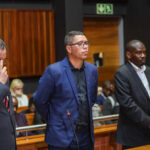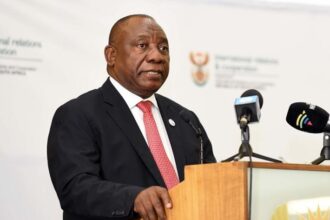The decision by President Cyril Ramaphosa to ease visa regulations for Nigerian nationals has sparked a wave of backlash, with growing demands for his resignation. The announcement, aimed at bolstering economic ties and boosting tourism, was made during the 11th Session of the South Africa-Nigeria Bi-National Commission in Cape Town on 3 December 2024. However, many South Africans feel the move prioritises foreign interests over local concerns.
Social Media Outcry and Global Parallels
Public outcry escalated on social media, with many drawing comparisons to the unfolding crisis in South Korea. There, President Yoon Suk Yeol recently declared martial law, granting the military sweeping authority to enforce laws. The decision triggered mass protests, vigils, and rallies across South Korea, forcing Yoon’s cabinet to reverse the martial law order. Inspired by these protests, some South Africans have taken to online platforms, demanding similar action from Ramaphosa — specifically, the reversal of the relaxed visa process.
The Visa Policy: What It Means
Under the new visa policy, Nigerian businesspeople who meet specific criteria will be eligible for a five-year multiple-entry visa. Remarkably, the application process will no longer require a passport, a move the Presidency insists is part of a broader strategy to modernise and streamline visa applications globally. Ramaphosa defended the policy, stating:
“Our efforts to create a favourable environment include introducing a simplified visa process for Nigerian businesspeople.”
The Presidency has maintained that the policy aims to attract investment and enhance bilateral relations. Nonetheless, the timing and scope of the policy have left many South Africans questioning its potential impact on local employment and security.
Public Sentiment and Opposition
Critics argue that the relaxed visa regulations could exacerbate existing socio-economic challenges, such as unemployment and crime. Opposition parties and civic organisations have joined the chorus, demanding transparency and a reconsideration of the policy. An open letter addressed to Ramaphosa has gained traction, with signatories accusing the government of neglecting its duty to protect South African interests.
Will Ramaphosa Reverse the Decision?
While the Presidency has issued clarifications, it remains unclear whether the mounting pressure will lead to a policy reversal. Ramaphosa’s administration is in a precarious position, facing both domestic dissatisfaction and the need to maintain diplomatic ties with Nigeria, one of South Africa’s key economic partners on the continent.
Conclusion
As protests grow louder and public discontent spreads, President Ramaphosa faces one of the most significant challenges of his tenure. Whether he will choose to reverse the visa policy or stand firm remains to be seen. One thing is certain: the coming weeks will test his leadership and the balance between economic diplomacy and public accountability.









